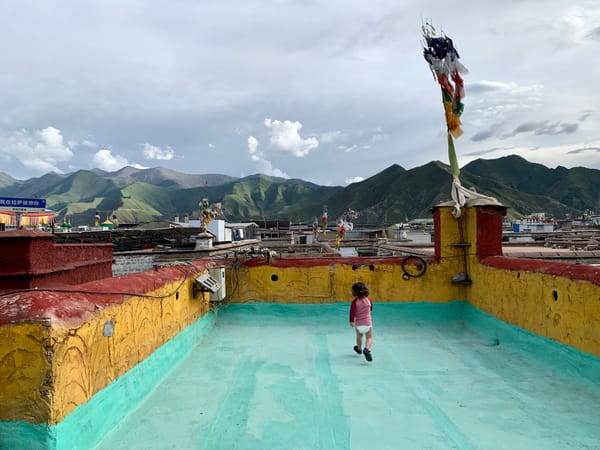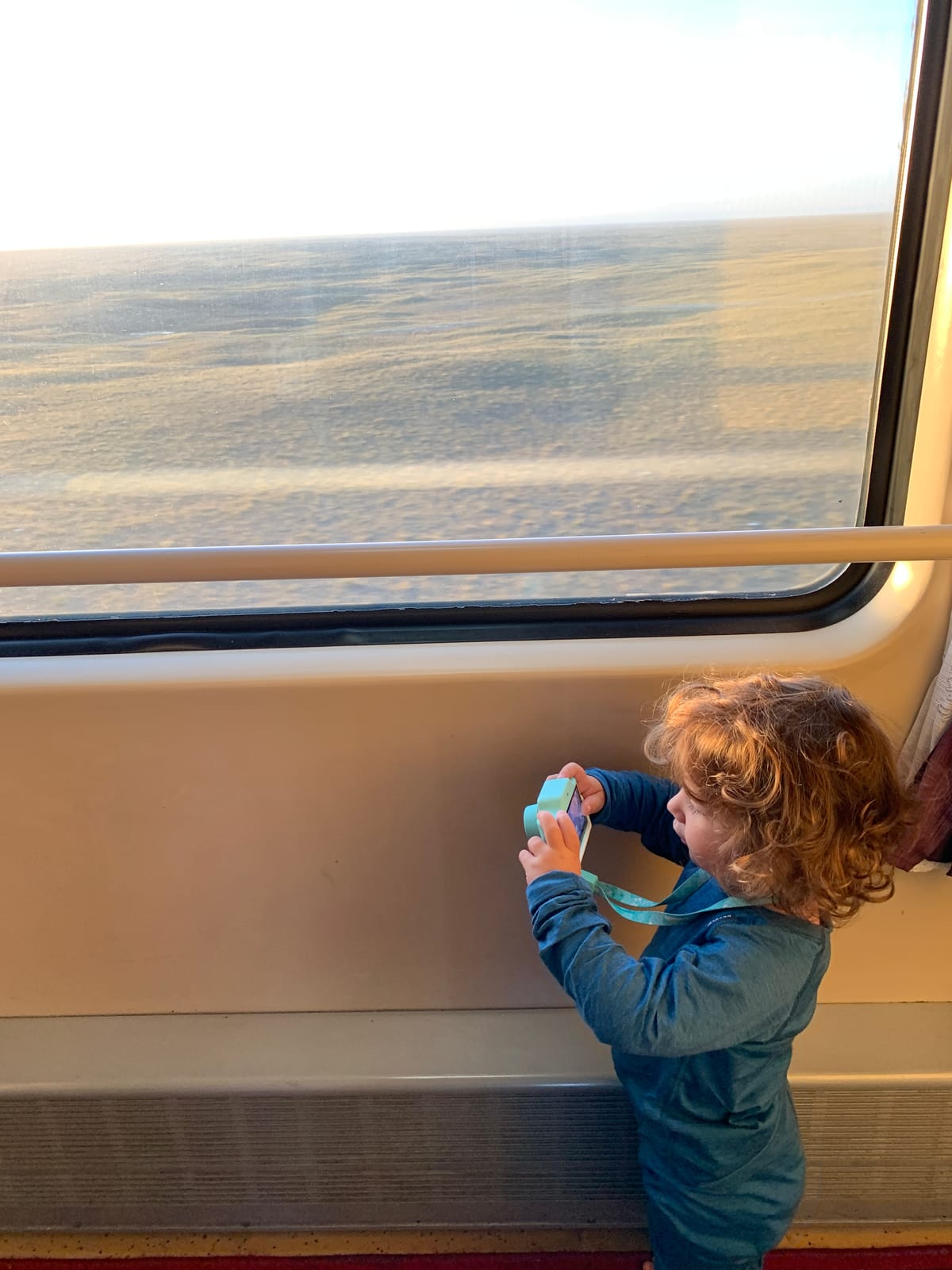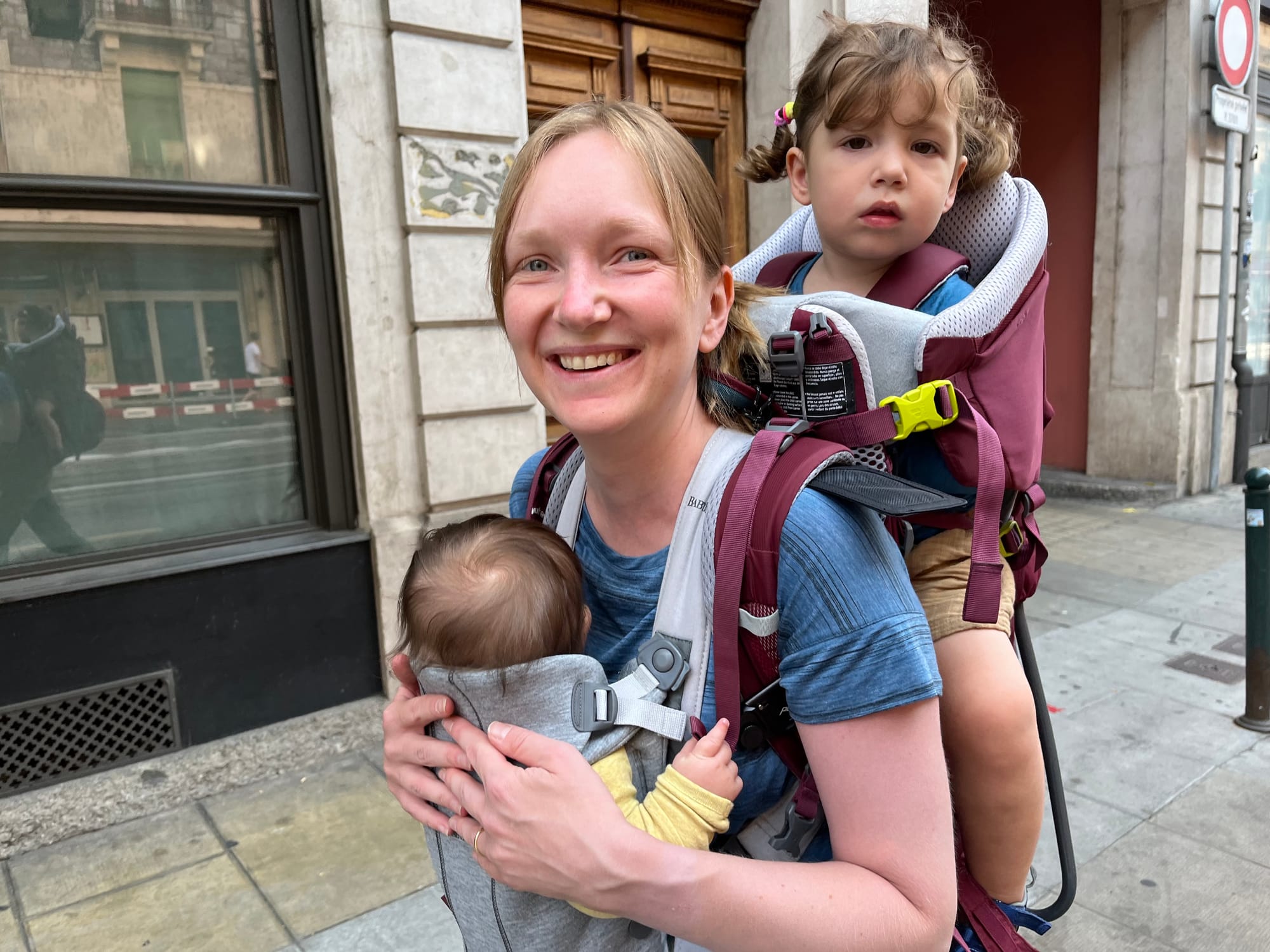
Taking Your Baby to Tibet: Essential Tips for Taking Children to High Altitude
Some helpful information to help you prepare for a trip to Tibet with small children.
Share this post:
Introduction
Planning our trip to China, we knew we wanted to visit some Buddhist region - our dream was to go Tibet, but we had a lot of concerns regarding altitude. People generally don't travel to high altitudes with babies, so it is hard to find any information from people who talk from their own experience.
In the end we decided to go and we had no issues related to altitude. Here is what we have learned during planning our trip.

Taking small children to high altitude - is it safe?
If you are planning a trip to high altitudes a small child or a baby, you should review your own circumstances and consult your pediatritian if you have any doubts.
The only clear no-no we read was that you cannot take an infant younger than 3 months to high altitudes as their lungs are not fully developed.
Our daughters were aged 5months and 2.5years at the time. Our doctor was shocked when we asked about whether or not it is safe to go to 3600m, but she also said that 'she had a headache going to Jungfrau' and she was herself googling medical advice concerning altitude on the go - so she didn't leave us with much confidence.
From what we have read, children are not any more prone to altitude sickness than adults. What does make traveling with small children a risk, is the fact that they cannot effectively communicate how they feel - you have to rely on your own observations.
At the altitude of 3600m the main effects of altitude sickness would be headaches, trouble breathing and general weakness, which should subside after the body acclimatises to the altitude. It is an altitude where people have permanent settlements and raise children, so it is not the altitude that should be considered dangerous on its own given proper adaptation period.
The higher you go, the harder it is to acclimatise, and the harder it is to predict how your body will react.
Obviously going to Everest Basecamp is not the same as going to Lhasa - the higher you go, the more cautious you need to be.
Consideration when planning a trip to high altitudes with babies and toddlers
Things you should consider before traveling to high altitudes with a baby or a small child:
- Does your child have any underlying conditions, especially related to breathing?
Our children are both healthy with no underlying conditions.
- In case of the babies and toddlers: are they gaining weight ok, are generally strong and fit?
Our children both have been on the top of the scale in terms of gaining weight - they are strong, eating well, a variety of food. If your child is fragile and generally weak, you cannot look over that fact.
- How well can you recognise if your child is unwell? Can you trust yourself that you will be able to tell if their behaviour is different than usual?
I was on maternity leave at the time of traveling and Nina was sleeping with me in bed. I spent 100% of my time with her in those early times - I knew what a 'normal' Nina looks like. I also know very well what is their normal behaviour.
- Is it easy for you to make them drink liquids to prevent dehydration?
Nina was fully breastfed at the time and because breastfeeding is not only nutritious but also comforting for babies, I knew that as long as she is not extremely unwell, she will drink a lot (her whole diet was liquid at the time!
We had actually more concerns with Hanna, as she can be stubborn and sometimes when she is busy has other things on her mind, she is not that interested in drinking, and it is much harder to force her - and she is too little to understand the explanations.
How to prevent altitude sickness?
The best way to prevent altitude sickness is to allow for slow acclimatisation - stay at the lower altitude for a few days.
On the way to Tibet, a good way to do it is to make a fee days stopover in Xining. Located at the altitude of 2000m, it is the starting point of the Qinghai-Tibet railway. Even though the city itself might seem bleek, it is a great place to experience some Muslim food and culture.
Around 2h from Xining there is a Qinghai lake - the biggest altitude lake in China. Located above 3000m, it is not only beautiful, but also a good way to see how you and your children react to the altitude. Our Tibet travel agent was able to organize a private car for 100$ for the whole day, but you can also try to join a group tour. What we noticed on that trip was that we were reacting to the altitude worse than the kids! It should come as no surprise as we were the ones carrying them and lower amounts of oxygen are mainly a problem when you are doing streneous exercise.
It is also important to drink a lot and avoid dehydration. For us it was much easier to achieve with the baby than the toddler - the breastfed Nina was very happy to receive extra feed, whereas Hanna needed to be constantly reminded to have a drink.
What to do if your child develops altitude sickness?
In case you do develop altitude sickness that does not go away, you should see a healthcare professional. In Tibet you are obliged to have a guide, so in case of health issues you can use his help to navigate the hospital and as a translator.
Bare in mind that Lhasa is a tourist destination, so they deal with people who have trouble with altitude adaptation daily - many tourists take a train to Lhasa straight from Beijing, not much higher than sea level. This means that hospitals are equipped for it - and oxygen treatment is a routine procedure there. So as long as you plan to stay near Lhasa, you don’t need to be overconcerned about altitude related issues. China has also a very good (and cheap) healthcare system, which I will write about in a separate post.
If oxygen doesn’t help, you should descend to a lower altitude - before our trip we promised ourselves that in case anything doesn’t feel right, we will just fly our of Tibet immediately.
Make sure you check out my other posts about our journey to Tibet:

Final note
This is by no means a medical advice. As you can see we decided to go against the concerns of our doctor. Our children are both healthy and strong, with no underlying conditions. Nina is gaining weight well and has good appetite.
We also have financial means to change our plans spontaneously and not to act against our intuition in order to save money.
You should always concider your own circumstances when planning the trip.
However, based on our experience, you should not rule our Tibet from your travel plans just because of the altitude!



